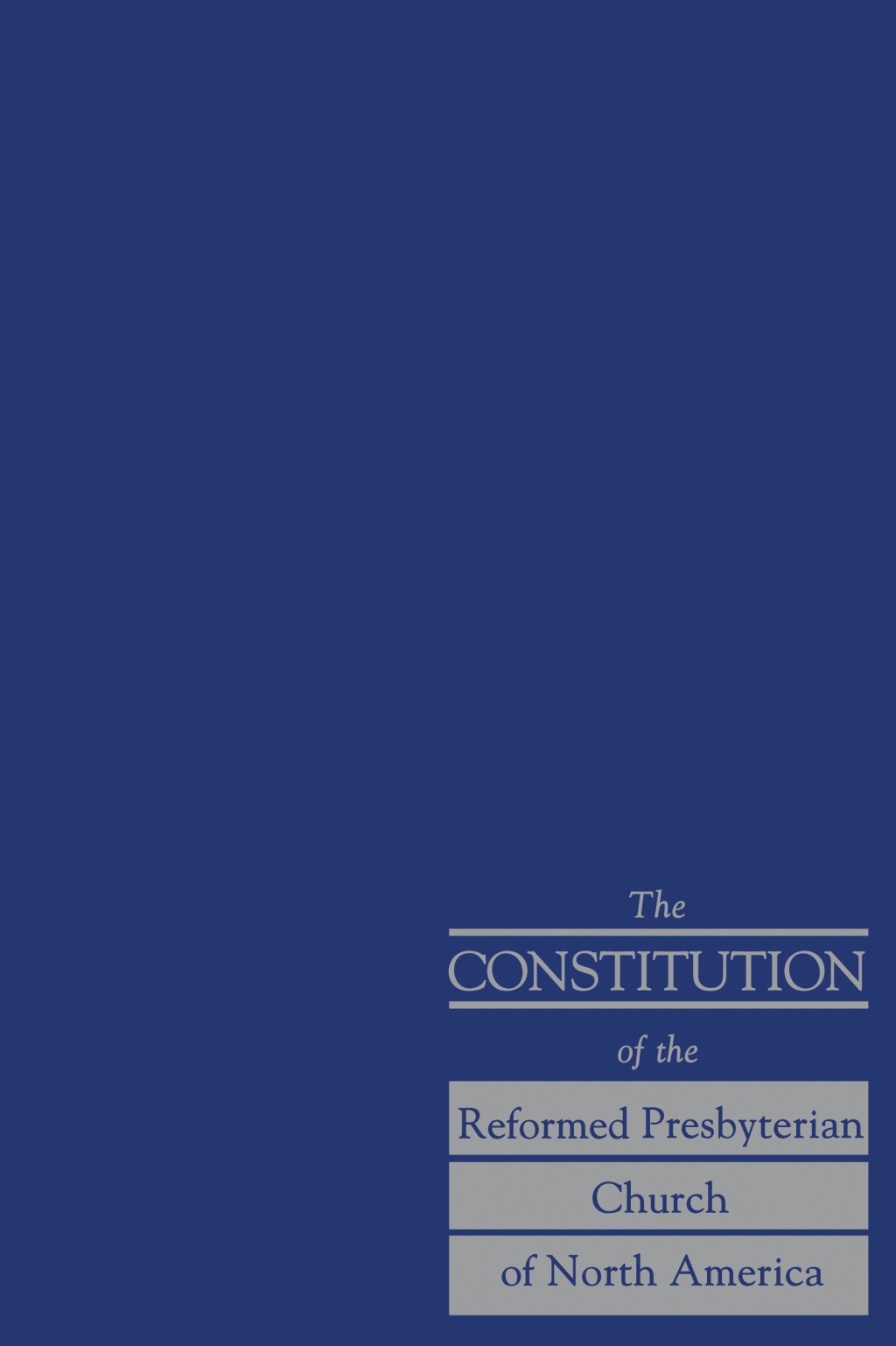You have free articles remaining this month.
Subscribe to the RP Witness for full access to new articles and the complete archives.
You likely know the Reformed Presbyterian Church has a particular understanding of the public worship of God. You might also know the church has a position on secret societies. But did you know that the RPCNA also has a statement on gambling? Voting? Education? Drugs, tobacco, alcohol? Even economics?
Congregations periodically elect elders and deacons. Do you know how that happens? What is the procedure? Who is eligible to serve? Are you familiar with your rights (and duties) as a member of the denomination?
All of this and much, much more is contained in the Constitution of the Reformed Presbyterian Church of North America. Within this document, you will find the Westminster Confession of Faith and the Testimony of the Reformed Presbyterian Church. These foundational documents, along with the Larger and Shorter Catechisms, form the fundamental law and order of the church. To these are added Directory for Church Government, The Book of Discipline, The Directory of Public Worship, and Vows. These latter documents provide definitions and procedures to implement the doctrinal statements concerning the nature of the church and its government, and to guide the church in its worship.
The Constitution also includes some history of the standards and the Covenant of 1871. There is an index, so if you want to know something about the denomination, start there. It is not an exhaustive index, but it lists many topics and where they can be found in the standards.
This information is important because members promise “to submit in the Lord to the teaching and government of this church as being based upon the Scriptures and described in substance in the Constitution of the Reformed Presbyterian Church of North America.” Members also promise, in case they should need correction in doctrine or life, “to respect the authority and discipline of the church.” People should not make promises to submit to an organization without due diligence. This does not mean you must be an expert on the teaching of the church, but it does indicate you should be familiar with its teachings, perspective, and history.
The Constitution lays out what the church believes the Bible teaches about many topics. Among them are the Scriptures themselves, God, creation, the fall into sin, the work of Christ, salvation, the work of the Holy Spirit in redemption, the place of the law of God, Christian liberty, oaths and vows, the civil magistrate, marriage and divorce, the Church and its worship, the sacraments, and what happens after death. It is good to be familiar with these doctrines.
The Directory for Church Government explains the duties and expectations of church membership. It defines how local congregations are organized and how the membership is to relate to one another within that setting. Members promise submission to the church, and this directory describes how congregations are organized, the qualifications of the leadership, and what members can rightfully expect of elders and deacons. This document also details how a congregation is to relate to other congregations within a Presbyterian system. Don’t join a church without knowing what is expected. Are the expectations reasonable? Are they biblical?
Members promise to submit to discipline should they need it. If you or another member should behave in an ungodly fashion, fall into sin, or hold unbiblical doctrines, what happens? The Book of Discipline guides this process. Here you’ll find the more formal, corrective, and often negative aspects of discipline. The leadership of the church hopes this is seldom used, but when it is needed, this directory explains how discipline should work, what the responsibilities are of an accuser, and what the rights are of one accused of wrongdoing. Should a case go to a church trial, it explains how the trial should be conducted.
More could be said, but this gives you brief look into the Constitution of the Reformed Presbyterian Church. Perhaps this overview raises questions, or provokes further interest on your part. Download your own copy here. Read it. Read it with others. Ask questions. Ask your pastor or elders to offer a class on the Constitution. Become better acquainted with this document. It is valuable.
